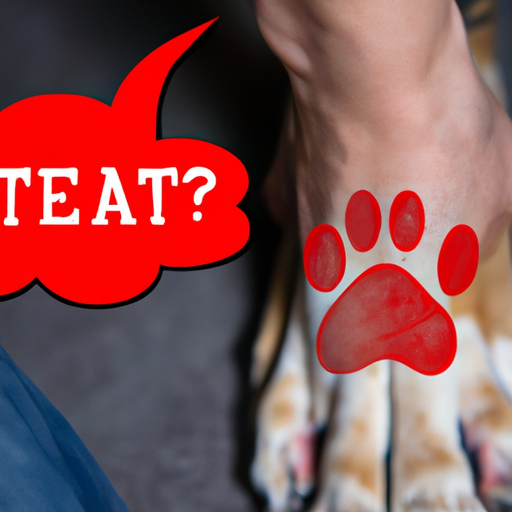Introduction
You’ve probably stumbled upon this article because you’ve noticed something unusual about your dog’s paws. They seem enlarged, swollen, and your beloved pet appears to be in discomfort. Don’t panic, you’re not alone. Swollen paws in dogs are quite common and can be attributed to various factors. This article will shed light on these causes and guide you on how to offer the best care for your furry friend.
Understanding the Causes
There are several reasons why your dog might have swollen paws, ranging from minor issues to severe conditions. Here are some of the most common causes:
- Allergies: Your dog might be allergic to certain substances, causing their paws to swell.
- This could be food allergies, chemicals, or environmental allergens like pollen.
- Injuries: Just like you might sprain your ankle, dogs can injure their paws while playing or walking.
- Infections: Bacterial or fungal infections can cause paws to swell. These are often accompanied by other symptoms, such as redness, heat, and pus.
- Parasites: Ticks, fleas, and mites can cause swelling and irritation.
- Medical conditions: Certain conditions like arthritis, cancer, or immune disorders can also lead to swollen paws.
Identifying the Symptoms
Swollen paws are usually pretty easy to spot. However, your dog might also show other signs that indicate discomfort or pain. Keep an eye out for:
- Limping or favoring one leg
- Constant licking or chewing at the paw
- Changes in behavior, such as restlessness or loss of appetite
Offering Immediate Relief
Before you can get your dog to a vet, there are a few things you can do to provide temporary relief:
- Clean the paw gently with warm water and a mild soap.
- Apply a cold pack to reduce swelling.
- Avoid letting your dog lick or chew at the paw.
- Keep your dog off their feet as much as possible.
| Tips for Immediate Relief |
|---|
| 1. Clean the paw |
| 2. Apply a cold pack |
| 3. Prevent licking or chewing |
| 4. Keep your dog off their feet |
Seeking Professional Help
While home remedies can offer temporary relief, it’s critical to seek professional help. A veterinarian can diagnose the exact cause of the swelling and prescribe appropriate treatment. This could include medication, special diets, or even surgery in severe cases.
FAQs
Q: Can I give my dog human medication for swollen paws?
A: No, never give your dog human medication without consulting a vet. Some human drugs can be toxic to dogs.
Q: How long does it take for the swelling to go down?
A: This depends on the cause of the swelling. For minor injuries or allergies, it might take a few days with proper treatment. For more severe conditions, it could take weeks or months.
Q: Can I prevent my dog’s paws from swelling?
A: Yes, regular grooming, proper nutrition, and regular vet check-ups can help prevent many causes of paw swelling.
Remember, as a caregiver, your dog’s health and comfort is in your hands. Be observant, be proactive, and don’t hesitate to seek professional help when needed. Your dog’s paws are crucial for their mobility and overall wellbeing, so let’s keep them healthy and happy!



